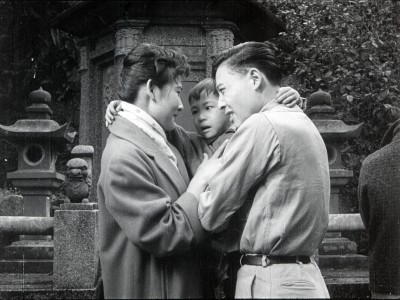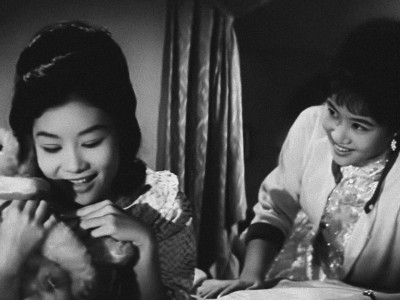
The Husband's Secret
May 13th, Night of Sorrow
Streaming
Cities of Love and Sadness includes supplementary lectures and a conversation by Dr. Chun-chi Wang, Director, Taiwan Film Institute and Dr. Evelyn Shih, Assistant Professor of Chinese, Department of Asian Languages and Civilizations, University of Colorado at Boulder. Please visit watchhfa.eventive.org to view the films, lectures and discussion.
A captivating melodrama narrated by an omniscient female voice, The Husband’s Secret is a nuanced analysis of postwar Taiwan’s precarious female livelihoods. In Taipei, single-mother Le-hun is dependent on the charity of her old classmate, married and affluent Tshiu-bi, to pay for her son’s hospital bills. However, Le-hun’s own romantic history with Tshiu-bi’s husband soon causes a rift between them, reinforcing the transactional and competitive nature of female social relations in the city. Driven to the countryside, Le-hun soon discovers a new model of female cooperation—a supportive social network offering egalitarian, even utopic bonds independent from the cold exchanges of capital and power that regulated urban life. Director Lin Tuan-chiu’s screenplay works with Japanese source material to craft complex and challenging psychological portraits of modern Taiwanese women. Trenchant social issues of the time—single motherhood, male guardianship, and obstacles against respectable employment—provide critical reflections on the presumed value of female virtue and cosmopolitan culture. Mixing melodrama, social exposé and a refined “elusive modern bourgeois japonisme” style, Lin’s camera, however brutal, never slips into mawkishness or fetishization. – Jacob Williams
After losing their mother at a young age, older sister Siok-hui takes a job as a chanteuse at a nightclub to support younger sister Siok-tshing, who puts her college education to use working at a chemical company. There, Siok-tshing develops a crush on a man who, unbeknownst to her, is actually falling in love with Siok-hui. A cross between the coming-of-age genre and a classic love triangle, May 13th, Night of Sorrow steers through humor and melodrama toward female solidarity. Director Lin Tuan-chiu’s original screenplay refurbished tropes that populated Taiwan’s screens at the time—destitute orphans and country girls who fall prey to the temptations of the big city—to intricately explore the evolving burdens and opportunities of women in 60s cosmopolitan Taipei. Combining sweeping landscape shots, sultry cabaret performances, and jaunty musical commentary on the sisters’ turbulent emotions, May 13th, Night of Sorrow offers a dazzling and heartfelt glimpse into modern Taiwan through the tension between two young women on their journey to sisterly love. – Hannah Baek







